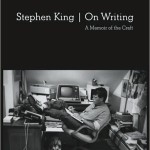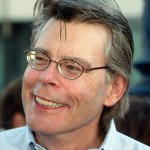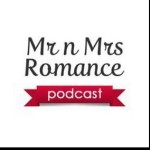Dare I be bold enough to review a book on writing, penned by the modern master of contemporary horror, suspense, science fiction and fantasy?
Why the hell not?
On Writing, A Memoir of the Craft is not new book. In fact it was published over 13 years ago. Whether it’s fiction or non-fiction, the thing about great writing is that it transcends time.
I had wanted to read King’s most notable diversion from fiction for a number of years now. And, unlike my experience with reading some of his other books, I suspected that after reading it I would be able to sleep without having to leave the lights on.
Why I hadn’t read it before now, I can’t tell you. But, I am glad I finally did. If you’re a writer and haven’t yet, I urge you to read it. And, don’t wait.
This book affected me. It challenged how I looked at writing and writers. It encouraged me to adopt the daily writing habit again. It was the personal insight from the man behind the massive imagination that added a layer of authenticity and intimacy that served as the foundation that delivered a truly compelling read.
Before leaving for a recent trip to Canada I purchased On Writing through Audible, downloaded it to my iPhone and thought I’d begin listening to it on the 15 hour plane ride, but instead I had an idea for a Novella that filled much of the time.
While in Toronto, I was living my own author adventures and during those whirlwind few weeks I thought about starting it, but ended up being more a case of, ‘Stephen, I know you’re there, closer than you’ve ever been, but it’s just not the right time. Soon, I promise.”
I returned home and settled back in to my Aussie routine. One day last week I left to take Buzz on our usual neighbourhood jaunt and instead of automatically tapping the podcast icon, I chose the Audible one instead. That was the day I began reading, (actually listening to) King’s Memoir of the Craft.
Four walks and five days later I was finished.
As with any book I truly enjoy, my emotions become mixed about three quarters of the way through. As I get closer and closer to the end, I get sadder and sadder that its conclusion as imminent.
I did not want On Writing to end.
To be frank the book is not what I expected. It was better, way better – better but different. I’ve had time to let my reactions form over the past few days so that I could distill them down to their lasting impressions. I needed to define what it was that about Stephen’s book that resonated so powerfully with me.
I think it was this:
- Listening to, rather than reading, this book was a serendipitous gift. Hearing King’s words being read by him, rather than from my own voice chirping away in my head, added a layer of authenticity, personality and raw connection that would not have existed for me, had it been my voice reading it (Audible there’s a USP for you to exploit.)
- It was enlightening hearing the stories of Stephen’s childhood, of his hardworking and devoted Mother, his brainiac brother with the big ideas, his parade of shocking sitters, his initial attempts at writing, his influences, his supporters. These all gave glimpses into Stephen’s formative years. They provided an insight into the man behind the imagination and perhaps some understanding as to where and how some of the darker bits of it were formed. The depth of the memoir portion of the book was a welcome surprise that leant credibility to the rest.
- He both shows and tells much about the fundamental importance of focusing on the story. He suggests that you might be best not to get too caught up in plot lines, imagery, theme, character development, You may not want to immerse yourself in all the writing accouterments, but to focus first and foremost on the story. What is it you want to say and to whom? And even if you’re not sure about all of it, start with the bits you are sure about. Stephen says that story is a fossil you find in the ground and you dig it out slowly, gradually uncovering its full potential. Some are small, some gargantuan, but the techniques of excavation are the same. Good advice. I added, don’t be afraid to dig deeper or in a different place.
- Being dedicated to the Ideal Reader will serve the writer well. What to keep, what to discard, which darlings to kill, which characters need which traits, decisions on setting, thematic devices, choices in dialogue – all become clearer when put through the filter of the Ideal Reader and what it is that will resonate best with him or her.
- If you want to be a writer you need to read a lot and you need to write a lot – it’s that simple.
- However, if you want to be as prolific as “The King”, you must write, write, and write and then write some more – there are no magic bullets. Writing is a craft and true craftsmanship requires time, effort, guidance, feedback, practice, and the dedication and commitment required for its continual honing.
- I loved his suggestion to write first with the door closed then with the door open. In no way is he discounting the power of feedback to improve your writing, but he suggests that there is an optimal time for it and that’s after you have created your first draft on your own. Keeping the door closed allows you to stay true to your initial version of the story, free from critique and questions and the doubt that they often ignite. You wouldn’t have someone taste your new recipe before all the ingredients were in there, so don’t taste test your story until it’s done. Once it’s ready, throw open the doors and feast on the advice and feedback offered for refinement especially that provided by your Ideal Reader.
- The journey and path one finds to writing doesn’t much matter. Embrace it whether it’s indulging a guilty pleasure discovered during your teens or a newly attempted retirement pastime that your gnarled fingers can barely endure. It does not matter whether you were destined for it or your love affair was one that was lit by happenstance. What matters is that you found it. King says that writing begins with a love for reading. I agree, but I’d add that it begins with a love of storytelling. I think that stories beget stories. A love for writing can also originate from a love of people. A desire to uncover and share their stories is as true a motivator as the love for written word itself.
- We all have demons and diversions. While not everyone is seduced by the allure of drugs and alcohol, we all have them in various forms. They can either enhance our writing by providing unique perspectives and conflicts to draw from or they can harm it by toying with our focus and stealing the precious time that could be much better spent refining our craft.
- Stephen King is a regular guy. There’s a sentence I never thought that I’d type. Am I mad? No. The overwhelming impression I got from Stephen’s Memoir of the Craft was that he was a regular guy. He had great experiences and horrible ones that shaped his life and he draws from both. He had a Mother whom he loved and who loved him. He has a supportive wife, children, friends and a job. He has experienced rejection and acceptance when introducing his creations to the world. He also admits to his fair share of fears and demons, yet chooses to focus on the love, support and inspiration that surround him. He has been affected by the randomness of life, been physically and emotionally scarred and challenged and fought hard to overcome a great many of these obstacles. He is relatable on so many levels and it was that honesty and intimacy that provided the surprising inspiration from this book. Maybe it’s because famous people are often such mysteries or maybe because of their achievements we see them as larger than life. But, maybe it’s because, it made me think that, hey, I’m a regular person too. I love the craft of writing, I know I’m not great at it yet, but I possess enough skill to argue that I’m at least good at it. And, as my grade school teachers would attest, ‘she shows incredible potential in this area’. While I’m no Stephen King. He has inspired me to keep writing, keep indulging my creative soul, to put fingers to keyboard, keep writing and honing and reading and writing and honing and reading. He also reminds us to do it because we love it, not because it’ll make us famous or rich (I wouldn’t mind a decent living from it though). It’s almost as though this accomplished author, this man responsible for creating some of the most colourful fiction of my lifetime has given me encouragement to take my own path, to embrace the author in me. He did this masterfully by sharing himself, his vulnerability, his success and his wisdom in the most honest, engaging and captivating book he’s yet to write.
Stephen, I am so grateful that in choosing to pen On Writing you ventured beyond the familiar. I am thankful that you were courageous enough to embrace the unknown, to dig in a different place, to step away from your usual genres and apply your storytelling talents to this book instead.
I suspect there are many of its readers who would agree that in doing so you have added the titles of teacher, coach, cheerleader, mentor and maybe even regular guy to that of best-selling author for which you are best known.




